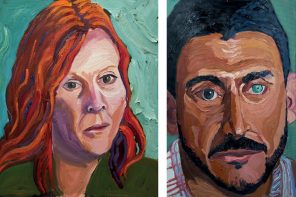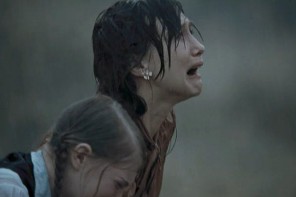Surely you remember Total Recall, the hugely successful 1990 film starring California’s current governor and based on the great Philip K. Dick short story?
But what just happened when you tried to remember whether you remember it?
What if I could block that memory, or insert another one in its place (as happens in the story)?
Todd Sacktor at SUNY Downstate Medical Center is working on the most recent example of a drug that might have been plucked directly from science fiction. When he injects the drug into rats who have learned (that is, retained the memory) not to walk on a surface that gives them a mild shock, they turn right around and walk on it again.
Ethics=Memory?
I teach a class on bioethics to college students. We start the course with the simple question: What are we? Are we are genes? Our memories? A combination? It seems to me we are, in large part, our memories. Not just our individual memories, but also our cultural memories, and our species’ memories. In fact, one whole theory of the evolution of consciousness, by the engaging eccentric Julian Jaynes, posits memory as the initial font of consciousness and even of primitive religion.
Jaynes imagines a primitive tribe sitting around a fire. They have strong memories of warnings from their former leader, who recently died. It is dark, but the leader’s ideas—build a fire, stay together—still have power beyond his death. He is keeping them safe without his being present. Thus soweth the seeds of awareness and the power of things we cannot see or understand.
Whether you agree with Jaynes’ theories (which I’ve greatly simplified) or not, it’s clear that ethics—and its ritualized partner, religion—are significantly shaped and driven by memory: memories of how to do things, why we do or should do things, how those before us did them, how we felt when we did or did not do them.
As a biologist, I ask: what exactly is a memory? Whatever it is and wherever it comes from, it must eventually be stored and maintained in brain tissues, ions, genes, and proteins. And, although it remains exciting as an academic question, and entertaining as science-fiction fodder, deeper and potentially more explosive societal issues hide in the question’s broad shadow. It is these more profound issues—with a healthy dash of sheer curiosity, no doubt—that have led Sacktor and other scientists to the story. For, if we can understand, at least at a basic biological level, what a memory is:
- Can we eliminate damaging, traumatic memories that cripple many people, including innumerable members of the military?
- Can we preemptively prevent post-traumatic stress by not allowing certain memories to form in the first place?
- Can we alter memories to treat damaging addictions (because, after all, is it a particular kind of memory that happens in addiction)?
- Or even, improve human normal learning ability and capacity?
And then, the big one: if we can, should we? In the case of the military, for example, what’s the potential downside to minimizing the psychic toll of war? More generally, altering one memory probably alters others—and doesn’t altering memories alter who we are? Were? Will be?
Offloading the Pain
Yes, you might say, relieved to escape the complexities of the situation, of course we should work to understand memory and develop drugs and other therapies so we can alleviate suffering: to prevent the suicide of a soldier returning from Iraq and paralyzed by depression, or of the child who witnesses the killing of his parents in Rwanda or Chicago.
However, we’re now familiar with the reality that most every experimental drug that makes it to market (see: Ritalin) and even some that don’t (see: LSD) move from therapeutic uses to enhancement uses. But maybe that’s okay. Maybe we’re even obligated to use new drugs that ‘improve’ people if we can. Sorry; the complexities are inescapable.
In his short story “Offloading for Mrs. Schwartz,” author and scientist George Saunders brilliantly weaves these complexities into a compelling narrative. Saunders focuses on memory, but his insight resonates more broadly to the eternal conundrum of discovery: new ideas for good can almost always also be used for bad—and how you define good or bad ain’t easy.
Saunders’ protagonist is depressed and, two years later, unable to get over the untimely death of his wife just after he’d yelled something brutally bitter at her. One day, while operating a business that provides customers with temporary virtual memories he discovers serendipitously that he can offload memories from one person’s brain for the enjoyment of another. He eventually stumbles upon the answer to his own depression and heartache: erase all his memories and start over as a new person. Immediately after the erasure, he reads the note he’d written to himself just prior:
You are alone in the world… Find someone to love. Your heart has never been broken. You’ve never done anything unforgiveable or hurt anyone beyond reparation. Everyone you’ve ever loved, you’ve treated like gold.




